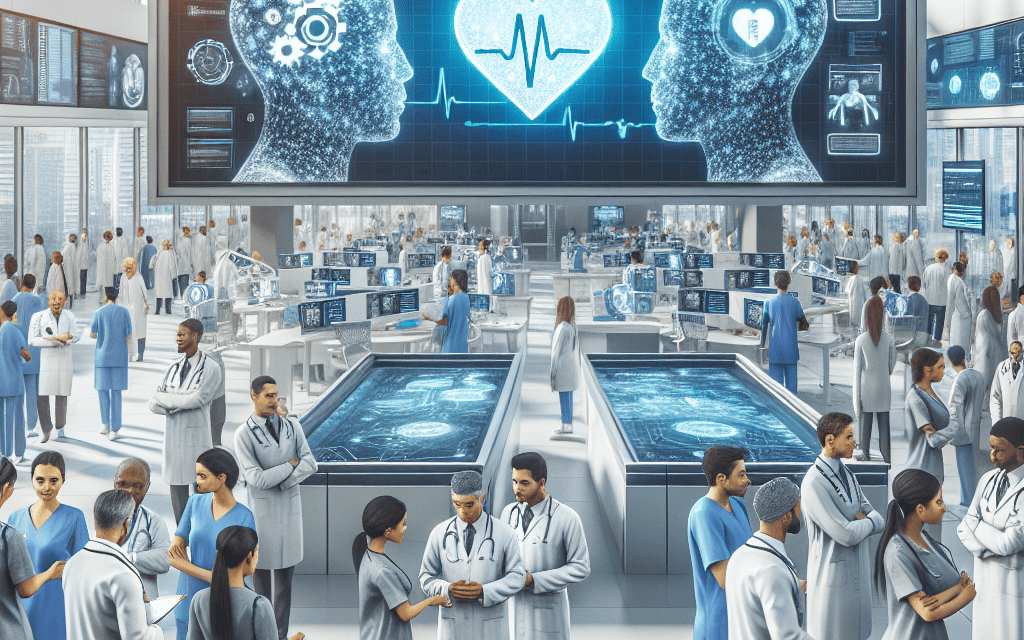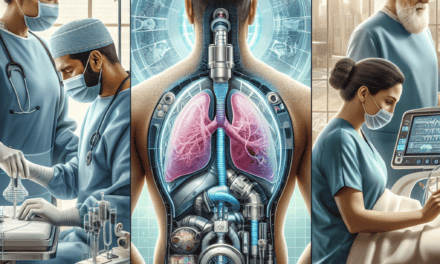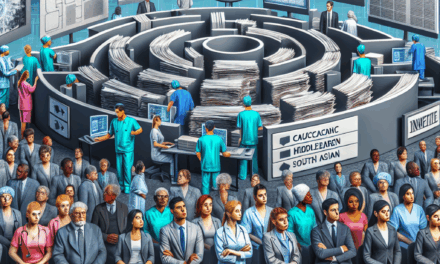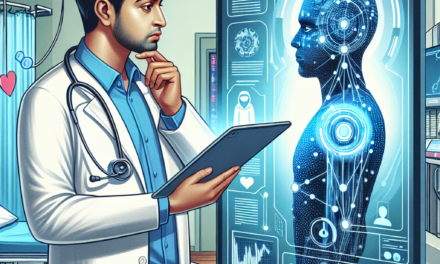Siloam Hospitals Expands AI Integrations and Announces New Partnerships
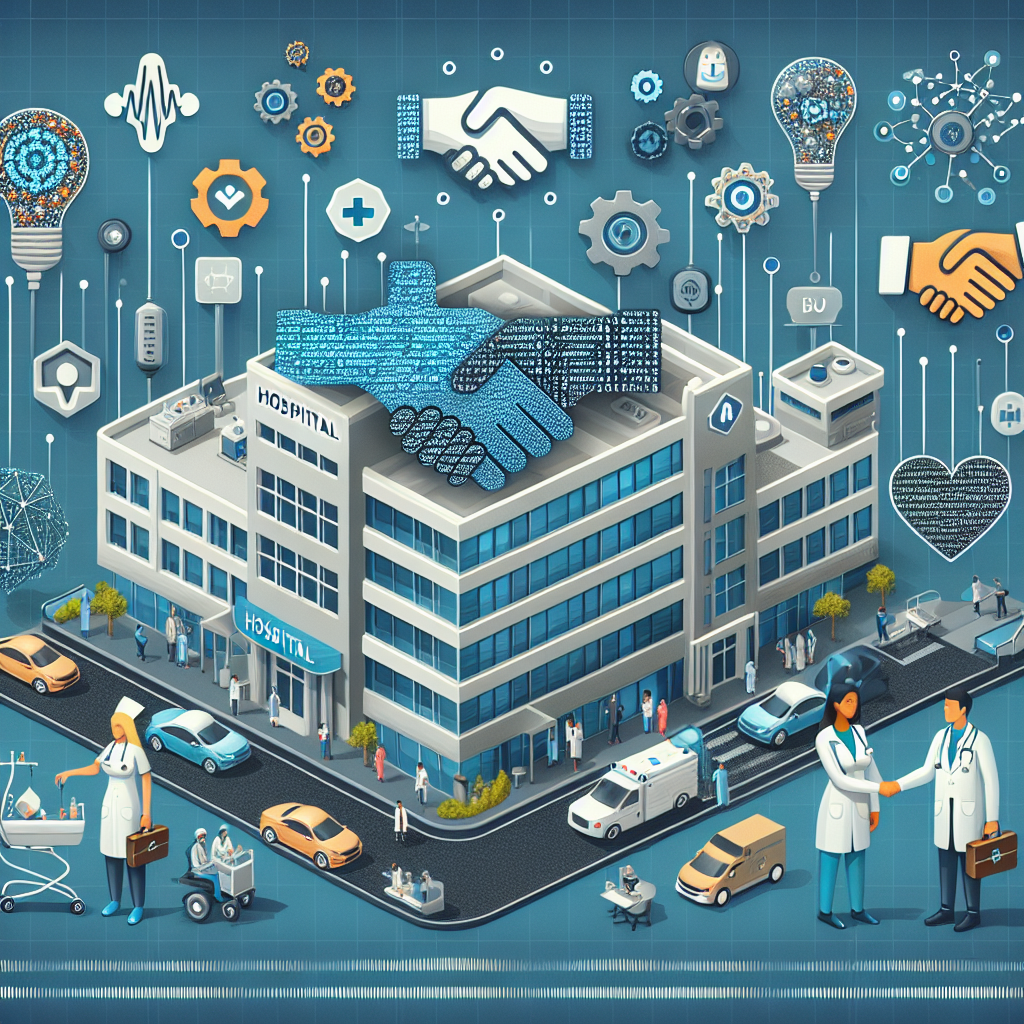
In the rapidly evolving landscape of healthcare, Siloam Hospitals has emerged as a frontrunner in integrating cutting-edge technology to enhance patient care and operational efficiency. The recent announcement of their expanded AI integrations and new strategic partnerships marks a significant milestone in their journey towards revolutionizing healthcare delivery. This article delves into the various facets of Siloam Hospitals’ AI initiatives, exploring the implications, benefits, and future prospects of these advancements.
1. The Role of AI in Modern Healthcare
Artificial Intelligence (AI) has become a transformative force in the healthcare industry, offering unprecedented opportunities to improve patient outcomes, streamline operations, and reduce costs. Siloam Hospitals’ commitment to integrating AI into their systems underscores the growing importance of this technology in modern healthcare.
AI’s capabilities in data analysis, predictive modeling, and automation have made it an invaluable tool for healthcare providers. By leveraging AI, hospitals can enhance diagnostic accuracy, personalize treatment plans, and optimize resource allocation. Siloam Hospitals’ adoption of AI is a testament to their dedication to providing high-quality care through innovative solutions.
One of the key areas where AI is making a significant impact is in medical imaging. AI algorithms can analyze medical images with remarkable precision, assisting radiologists in detecting abnormalities and diagnosing conditions at an early stage. Siloam Hospitals has integrated AI-powered imaging solutions to improve diagnostic accuracy and reduce the time required for image analysis.
Moreover, AI is playing a crucial role in predictive analytics, enabling healthcare providers to anticipate patient needs and allocate resources more efficiently. By analyzing historical data and identifying patterns, AI can predict patient admissions, optimize staffing levels, and ensure the availability of critical resources. Siloam Hospitals’ use of AI-driven predictive analytics is enhancing their ability to deliver timely and effective care.
- Enhanced diagnostic accuracy through AI-powered imaging solutions
- Improved resource allocation with AI-driven predictive analytics
- Personalized treatment plans based on AI analysis
2. Siloam Hospitals’ Strategic Partnerships
To further strengthen their AI capabilities, Siloam Hospitals has forged strategic partnerships with leading technology companies and research institutions. These collaborations are aimed at accelerating the development and deployment of AI solutions across their network of hospitals.
One of the notable partnerships is with a renowned AI research lab, which focuses on developing advanced algorithms for medical imaging and diagnostics. This collaboration has enabled Siloam Hospitals to access cutting-edge AI technologies and integrate them into their clinical workflows. By working closely with AI experts, Siloam Hospitals is at the forefront of innovation in medical imaging.
In addition to research partnerships, Siloam Hospitals has also joined forces with technology companies specializing in AI-driven healthcare solutions. These partnerships have facilitated the implementation of AI-powered tools for patient monitoring, data analysis, and decision support. By leveraging the expertise of these technology partners, Siloam Hospitals is enhancing their ability to deliver high-quality care.
Furthermore, Siloam Hospitals is actively collaborating with academic institutions to foster research and development in AI applications for healthcare. These partnerships provide opportunities for knowledge exchange, joint research projects, and the development of innovative solutions. By engaging with academia, Siloam Hospitals is contributing to the advancement of AI in healthcare.
- Partnership with AI research labs for advanced algorithm development
- Collaboration with technology companies for AI-driven healthcare solutions
- Engagement with academic institutions for research and development
3. Case Studies: AI in Action at Siloam Hospitals
The integration of AI at Siloam Hospitals is not just theoretical; it is already making a tangible impact on patient care and operational efficiency. Several case studies highlight the successful implementation of AI solutions across various departments.
In the radiology department, AI-powered imaging solutions have significantly improved diagnostic accuracy and reduced the time required for image analysis. Radiologists at Siloam Hospitals are now able to detect abnormalities with greater precision, leading to earlier diagnosis and treatment. This has resulted in improved patient outcomes and increased efficiency in the radiology department.
Another area where AI is making a difference is in patient monitoring. Siloam Hospitals has implemented AI-driven tools for continuous monitoring of patients’ vital signs and health parameters. These tools provide real-time alerts to healthcare providers, enabling timely interventions and reducing the risk of complications. The use of AI in patient monitoring has enhanced patient safety and improved the quality of care.
AI is also being utilized in the management of hospital operations. Predictive analytics tools are helping Siloam Hospitals optimize resource allocation, reduce wait times, and improve patient flow. By analyzing historical data and identifying patterns, these tools enable hospital administrators to make informed decisions and allocate resources more efficiently. This has resulted in improved operational efficiency and enhanced patient satisfaction.
- Improved diagnostic accuracy in radiology through AI-powered imaging
- Enhanced patient monitoring with AI-driven tools
- Optimized hospital operations with predictive analytics
4. Challenges and Considerations in AI Integration
While the integration of AI offers numerous benefits, it also presents certain challenges and considerations that need to be addressed. Siloam Hospitals is actively working to overcome these challenges and ensure the successful implementation of AI solutions.
One of the primary challenges is the need for high-quality data. AI algorithms rely on large volumes of data for training and analysis. Ensuring the availability of accurate and comprehensive data is crucial for the success of AI initiatives. Siloam Hospitals is investing in data management systems and processes to ensure the integrity and quality of their data.
Another consideration is the ethical implications of AI in healthcare. The use of AI raises questions about patient privacy, data security, and algorithmic bias. Siloam Hospitals is committed to upholding ethical standards and ensuring that AI solutions are used responsibly. They have implemented robust data protection measures and are actively working to address potential biases in AI algorithms.
Furthermore, the integration of AI requires a cultural shift within the organization. Healthcare providers need to be trained and educated on the use of AI tools and technologies. Siloam Hospitals is investing in training programs and workshops to equip their staff with the necessary skills and knowledge to effectively utilize AI solutions.
- Ensuring high-quality data for AI training and analysis
- Addressing ethical implications of AI in healthcare
- Training and education for healthcare providers
5. Future Prospects and Innovations
The future of AI in healthcare is promising, with endless possibilities for innovation and improvement. Siloam Hospitals is committed to staying at the forefront of AI advancements and exploring new opportunities to enhance patient care.
One area of future exploration is the use of AI in personalized medicine. By analyzing genetic data and patient profiles, AI can help tailor treatment plans to individual patients, improving outcomes and reducing adverse effects. Siloam Hospitals is actively researching and developing AI solutions for personalized medicine, aiming to provide more targeted and effective treatments.
Another promising area is the use of AI in telemedicine. With the increasing demand for remote healthcare services, AI can play a crucial role in enhancing telemedicine platforms. Siloam Hospitals is exploring AI-driven solutions for remote patient monitoring, virtual consultations, and telehealth triage. These innovations have the potential to expand access to healthcare and improve patient convenience.
Furthermore, Siloam Hospitals is investing in AI research and development to explore new applications and technologies. They are collaborating with industry leaders and academic institutions to drive innovation and push the boundaries of what is possible with AI in healthcare. By fostering a culture of innovation, Siloam Hospitals is positioning itself as a leader in the future of healthcare.
- Exploring AI in personalized medicine for targeted treatments
- Enhancing telemedicine platforms with AI-driven solutions
- Investing in AI research and development for future innovations
Conclusion
Siloam Hospitals’ expansion of AI integrations and new partnerships marks a significant step forward in their mission to revolutionize healthcare delivery. By leveraging the power of AI, they are enhancing diagnostic accuracy, improving patient outcomes, and optimizing hospital operations. The strategic partnerships with technology companies and research institutions further strengthen their AI capabilities and position them as a leader in the healthcare industry.
While challenges and considerations exist, Siloam Hospitals is actively addressing them to ensure the successful implementation of AI solutions. Their commitment to ethical standards, data quality, and staff training underscores their dedication to responsible AI integration.
Looking ahead, the future prospects of AI in healthcare are promising. Siloam Hospitals’ focus on personalized medicine, telemedicine, and ongoing research and development positions them at the forefront of innovation. As they continue to explore new opportunities and push the boundaries of what is possible, Siloam Hospitals is poised to shape the future of healthcare with AI.

